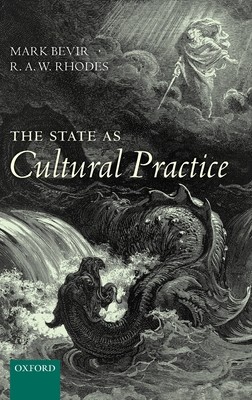
- We will send in 10–14 business days.
- Author: Mark Bevir
- Publisher: Oxford University Press, USA
- ISBN-10: 0199580758
- ISBN-13: 9780199580750
- Format: 15.2 x 23.4 x 2.3 cm, hardcover
- Language: English
- SAVE -10% with code: EXTRA
Reviews
Description
The State as Cultural Practice offers a fully worked out account of the authors' distinctive interpretive approach to political science. It challenges the new institutionalism, probably the most significant present-day strand in both American and British political science. It moves away from such notions as 'bringing the state back in', 'path dependency' and modernist empiricism. Instead, Bevir and Rhodes argue for an anti-foundational analysis, ethnographic and historical methods, and a decentred approach that rejects any essentialist definition of the state and espouses the idea of politics as cultural practice. The book has three aims: to develop an anti-foundational theory of the state; to develop a new research agenda around the topics of rule, rationalities, and resistance; and by exploring empirical shifts and debates about the changing nature of the state to show how anti-foundational theory leads us to see them differently. Bevir and Rhodes argue for the idea of 'the stateless state' or the state as meaning-in-action. So, the state is neither monolithic nor a causal agent. It consists solely of the contingent actions of specific individuals; of diverse beliefs about the public sphere, about authority and power, which are constructed differently in contending traditions. Continuity and change are products of people inheriting traditions and modifying them in response to dilemmas. A decentred approach explores the limits to the state and seeks to develop a more diverse view of state authority and its exercise. In short, political scientists need to bring people back in to the study of the state.EXTRA 10 % discount with code: EXTRA
The promotion ends in 15d.21:24:13
The discount code is valid when purchasing from 10 €. Discounts do not stack.
- Author: Mark Bevir
- Publisher: Oxford University Press, USA
- ISBN-10: 0199580758
- ISBN-13: 9780199580750
- Format: 15.2 x 23.4 x 2.3 cm, hardcover
- Language: English English


Reviews